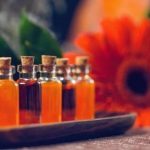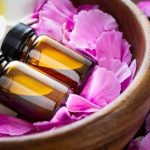Are essential oils aromatherapy safe? Essential oils and aromatherapy have become increasingly popular in recent years as natural remedies for various health concerns. Understanding the basics of essential oils and aromatherapy is essential for those considering incorporating them into their wellness routine. This article will explore the safety aspects of using essential oils for aromatherapy, including the potential risks, guidelines for safe use, and expert recommendations.
Essential oils are highly concentrated plant extracts that are used in aromatherapy to promote physical and mental well-being. The practice of using these aromatic compounds has been around for centuries and has gained widespread recognition for its potential therapeutic benefits. However, it is crucial to understand the importance of safety when using essential oils for aromatherapy to avoid any adverse effects on health.
When it comes to using essential oils in aromatherapy, there are potential risks and side effects that need to be considered. Improper use or overuse of certain essential oils can lead to skin irritation, allergic reactions, or even toxicity. It is important to be aware of these risks and take necessary precautions to ensure a safe and positive experience with essential oil aromatherapy.
In this section, we will delve into the fundamentals of understanding essential oils and how they can be safely utilized in aromatherapy practices. By gaining insight into the proper methods of application and potential risks associated with their use, individuals can make informed decisions regarding their use in promoting overall well-being.
The Importance of Safety in Using Essential Oils for Aromatherapy
Essential oils have been used for centuries as natural remedies for various ailments and for their aromatic properties. Aromatherapy, the use of essential oils for therapeutic purposes, has gained popularity in recent years as people seek alternative methods for improving their well-being. However, it is important to understand that essential oils are highly concentrated plant extracts that must be used with caution.
When using essential oils for aromatherapy, safety should be a top priority. These potent oils can cause harm if not used properly, so being aware of potential risks and side effects is crucial. It is also important to follow guidelines for safe use and choose high-quality oils from reputable sources. By prioritizing safety, individuals can fully enjoy the benefits of aromatherapy without putting their health at risk.
Potential Risks and Side Effects of Using Essential Oils in Aromatherapy
Despite the many benefits of essential oil aromatherapy, there are potential risks and side effects that users should be aware of. Some essential oils can cause skin irritation or allergic reactions, especially when applied directly to the skin without proper dilution.
Inhaling certain essential oils in large quantities can also lead to respiratory issues or other adverse reactions. Additionally, some essential oils may interact with medications or exacerbate certain health conditions, so it’s important to consult with a healthcare professional before using them.
| Potential Risks | Side Effects |
|---|---|
| Skin Irritation | Allergic Reactions |
| Respiratory Issues | Interactions with Medications |
Potential Risks and Side Effects of Using Essential Oils in Aromatherapy
Skin Irritation and Sensitization
One of the potential risks of using essential oils in aromatherapy is skin irritation and sensitization. Some essential oils are known to cause skin reactions, especially when used undiluted or in high concentrations.
It is important to perform a patch test before using any essential oil topically, especially if you have sensitive skin. Patch testing involves applying a small amount of diluted essential oil to a small area of your skin and waiting 24 hours to check for any adverse reaction.
Respiratory Issues
Another risk of using essential oils in aromatherapy is the potential for respiratory issues, especially when inhaling essential oils directly from the bottle or using them in a poorly ventilated space. Certain essential oils can trigger asthma attacks or allergic reactions in some individuals. It is important to use essential oils in a well-ventilated area and consider using a diffuser to disperse the aroma more effectively.
Interaction With Medications
Using essential oils in aromatherapy may also pose risks for individuals taking certain medications. Some essential oils have been found to interact with medications, either by enhancing or inhibiting their effects. It is important to consult with a healthcare professional before using essential oils if you are taking any prescription medications, especially if you plan to use them internally.
As with any form of holistic therapy, it is crucial to be informed about the potential risks and side effects associated with the use of essential oils in aromatherapy. By understanding these risks and taking necessary precautions, individuals can safely enjoy the benefits of aromatherapy without experiencing any adverse effects.
Guidelines for Safe Use of Essential Oils in Aromatherapy
Proper Dilution
When using essential oils for aromatherapy, it is crucial to dilute them properly. Essential oils are highly concentrated and can cause skin irritation or other adverse reactions if used undiluted. It is recommended to mix essential oils with a carrier oil, such as coconut oil or sweet almond oil, before applying them to the skin. The standard dilution ratio is 2% for adults, which means adding 12 drops of essential oil per ounce of carrier oil.
Patch Testing
Before using any new essential oil for aromatherapy, it is important to conduct a patch test to check for any allergic reactions. To do a patch test, mix a small amount of diluted essential oil and apply it to a small area of skin. Wait 24 hours and observe for any redness, itching, or irritation. If there is no negative reaction, the essential oil is likely safe for use.
Cautions With Ingestion
While some people advocate for ingesting essential oils for therapeutic purposes, it is important to exercise caution when doing so. Ingesting certain essential oils can be toxic and harmful to the body. Always consult with a qualified aromatherapist or healthcare professional before ingesting any essential oils. In general, it is best to use essential oils for aromatherapy through inhalation or topical application rather than ingestion.
Choosing Quality Essential Oils for Aromatherapy
Essential oils are highly concentrated plant extracts that have been used for centuries in traditional medicine and aromatherapy. They are known for their aromatic properties and therapeutic benefits, which can range from relaxation and stress relief to pain management and skin care. Aromatherapy, the practice of using essential oils for holistic healing, has become increasingly popular in recent years.
The Importance of Safety in Using Essential Oils for Aromatherapy
When it comes to using essential oils for aromatherapy, safety should always be a top priority. While essential oils offer numerous health benefits, they can also pose risks if not used properly. It is important for individuals to educate themselves on the potential dangers associated with essential oil use and take necessary precautions to avoid any adverse effects.
Potential Risks and Side Effects of Using Essential Oils in Aromatherapy
Some potential risks and side effects of using essential oils in aromatherapy include skin irritation, allergic reactions, respiratory issues, and interactions with medications. Certain essential oils may also be toxic if ingested or applied undiluted to the skin. It is crucial for individuals to be aware of these potential risks and consult with a qualified healthcare professional before incorporating essential oils into their wellness routine.
Safe Methods of Applying Essential Oils for Aromatherapy
When it comes to using essential oils for aromatherapy, it’s important to understand the safe methods of applying these powerful substances. Whether you’re using them for relaxation, stress relief, or other therapeutic purposes, following proper application techniques is crucial for maximizing benefits while minimizing potential risks.
Here are some safe methods of applying essential oils for aromatherapy:
- Dilution: Most essential oils should be diluted with a carrier oil before being applied to the skin. This not only helps spread the essential oil over a larger surface area but also reduces the risk of skin irritation or sensitivity.
- Inhalation: Inhaling essential oils through methods such as diffusing or direct inhalation can be a safe and effective way to experience their aromatherapeutic benefits. Be cautious about using directly inhaling certain oils, especially in large quantities.
- Topical Application: When applying essential oils topically, it’s important to do a patch test first to check for any adverse reactions. Always follow recommended dilution ratios and avoid applying undiluted essential oils directly onto the skin.
By following these safe application methods, individuals can enjoy the therapeutic effects of essential oils without compromising their well-being. Additionally, seeking guidance from a qualified aromatherapist or healthcare professional can provide personalized recommendations for safe and effective use based on individual needs and health considerations.
Precautions and Contraindications for Using Essential Oils in Aromatherapy
When using essential oils for aromatherapy, it is crucial to be aware of the precautions and contraindications to ensure safe and effective use. While essential oils offer numerous benefits, they can also pose risks if not used properly. Here are some essential precautions and contraindications to consider when using essential oils for aromatherapy:
- Avoid direct skin contact: Some essential oils can cause skin irritation or allergic reactions when applied directly. It is important to always dilute essential oils with a carrier oil before applying them to the skin.
- Pregnancy and breastfeeding: Certain essential oils have been found to have adverse effects on pregnant women or breastfeeding mothers. It is recommended to consult with a healthcare professional before using any essential oils during pregnancy or while breastfeeding.
- Medical conditions: Individuals with certain medical conditions such as epilepsy, high blood pressure, asthma, or other chronic health issues should exercise caution when using essential oils for aromatherapy. It is advisable to seek advice from a healthcare provider before using essential oils in these cases.
It is also important to be mindful of the potential interactions between medications and essential oils. Some essential oils may interfere with certain medications, so it is wise to consult with a healthcare professional if you are taking any medications.
In addition, pets can be sensitive to certain essential oils, so it’s important to keep them away from areas where diffusers are used or when applying diluted essential oil blends topically. Lastly, always store essential oils out of reach of children and pets to prevent accidental ingestion or misuse.
By being aware of these precautions and contraindications, individuals can safely enjoy the benefits of aromatherapy with essential oils while minimizing potential risks associated with their use.
Expert Recommendations for Safe and Effective Aromatherapy With Essential Oils
In conclusion, essential oils can be a safe and effective tool for aromatherapy when used properly. It is important to understand the potential risks and side effects associated with these powerful oils, as well as the guidelines for their safe use. By choosing high-quality essential oils and employing safe application methods, individuals can experience the many benefits of aromatherapy without putting their health at risk.
Expert recommendations for safe and effective aromatherapy with essential oils emphasize the importance of dilution, proper ventilation, and understanding individual sensitivities. It is also crucial to be aware of any precautions and contraindications associated with specific essential oils, especially for pregnant women, young children, and individuals with certain medical conditions. Seeking guidance from a qualified aromatherapist or healthcare professional can provide valuable insight into using essential oils safely and effectively.
Ultimately, while there are potential risks involved in using essential oils for aromatherapy, following expert recommendations and exercising caution can help ensure a positive experience. By educating oneself on the proper use of essential oils and seeking professional advice when needed, individuals can harness the therapeutic benefits of aromatherapy while prioritizing their safety and well-being.
Frequently Asked Questions
Is It Safe to Inhale Aromatherapy Oils?
Inhaling aromatherapy oils can be safe when done properly and in moderation. It’s important to dilute the oils and use them in a well-ventilated area to avoid any potential respiratory irritation or allergic reactions.
Some oils can also be toxic if ingested, so it’s crucial to use caution and follow safety guidelines when using aromatherapy oils for inhalation.
Is It Safe to Diffuse Essential Oils?
Diffusing essential oils can be safe as long as it is done responsibly. Using a high-quality diffuser and following instructions for dilution and diffusion times can help minimize any potential side effects.
It’s also important to consider the presence of pets or children, as some essential oils can be harmful to them. When used carefully, diffusing essential oils can provide various benefits such as relaxation, improved mood, and purifying the air.
What Is the Difference Between Essential Oils and Aromatherapy Oils?
The main difference between essential oils and aromatherapy oils lies in their composition and usage. Essential oils are highly concentrated plant extracts obtained through distillation or cold pressing methods, while aromatherapy oils may contain synthetic ingredients or diluted essential oils.
Essential oils are typically used for therapeutic purposes, such as improving physical or emotional well-being, while aromatherapy oils are often created for fragrance enhancement in perfumes, candles, or air fresheners. It’s important to check labels carefully to ensure that you’re getting pure essential oils if that is what you’re seeking for their therapeutic benefits.

Are you looking for a natural way to improve your health and wellbeing?
If so, aromatherapy may be the answer for you.





